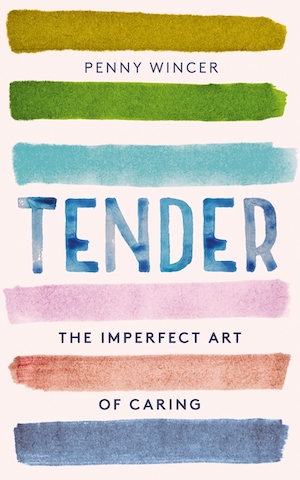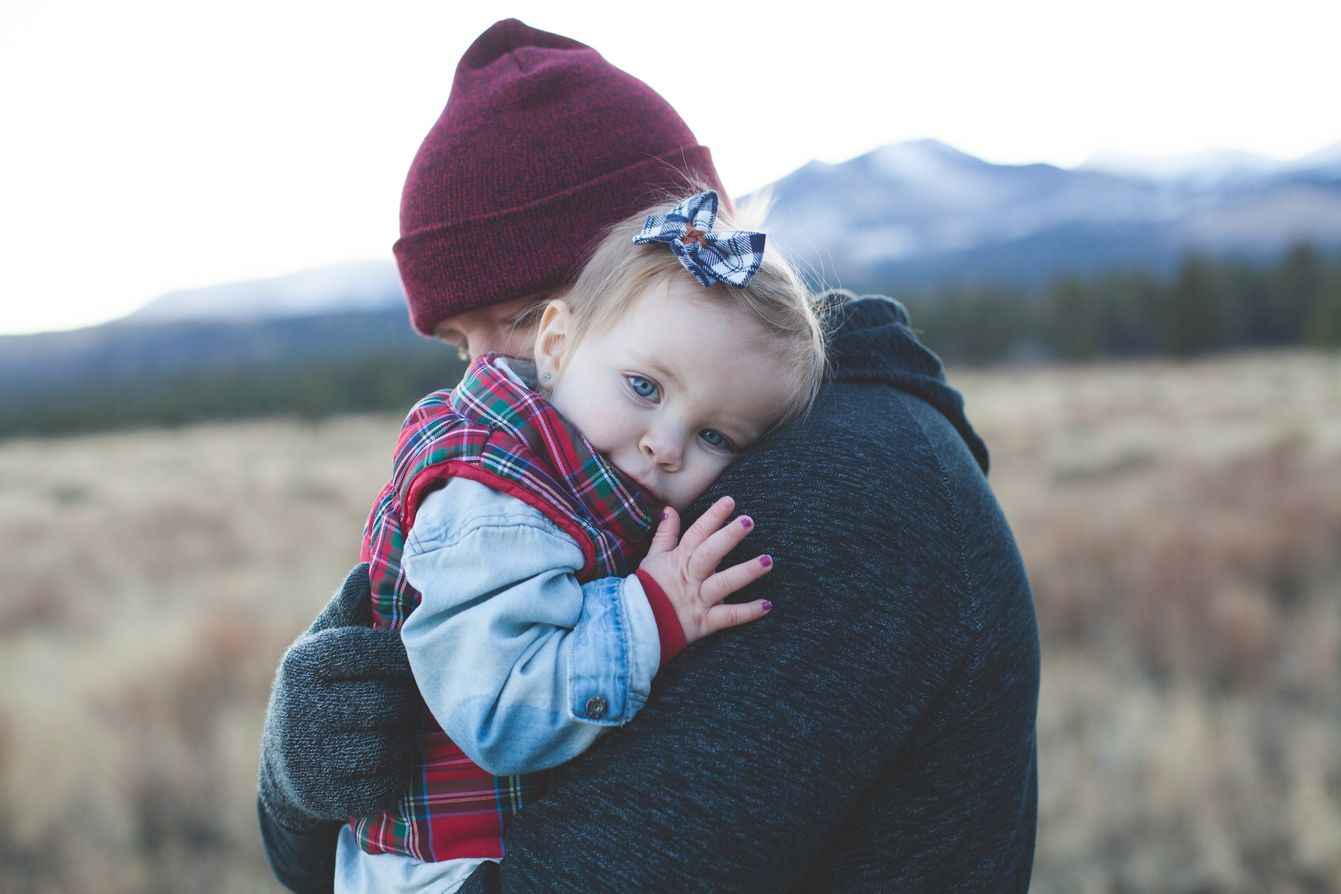My son Arthur is 10 at the moment. He was given an official diagnosis of autism when he was three. By the time we had a diagnosis, it had been a year-and-a-half since his sister Agnes was born. Arthur’s father and I are separated. I am our children’s main carer, taking a break every other weekend while he spends time with them.
Caring for a disabled child is a bit like extreme parenting. You have all the usual worries of a parent but it’s all a bit on steroids. That includes both the highs and the lows.
For instance, even with a typical child, school is a juggle—remembering which days are PE, piano or packed lunch days, coordinating your work with the school holidays, communicating with teachers—it’s a lot of work. But add in a disability and you are doing all those things plus staying on top of therapists and paediatricians, making sure the school meets your child’s needs (including legal requirements), communicating with the school about every tiny thing because you have a child who can’t speak and can’t organise themselves at all. And having one disabled child and one non-disabled child means I’m always dealing with two schools, two different term dates, two different sets of teacher training days and parent teacher evenings—the list goes on!
There are some things that also just don’t apply to us. It can be overwhelming to chat with other parents and hear them laugh and tell each other “don’t worry this phase will pass” or “well at least they’ll grow up and move out at some point!” when you know that having a child with moderate-to-severe learning difficulties mean that life is likely to get more challenging and complicated in many ways.
On the flip side, I have a child who has worked incredibly hard for the tiniest milestones and there is a lot of celebrating over what other families take for granted. We celebrate the small things and I always appreciate a day that goes smoothly. Being a parent to my son is nothing if not extreme!
Happiness and joy in caring for a disabled child
Despite everything, I am happy. I am happy a lot of the time—as much as many friends in circumstances that others would consider far more desirable (still married, with non-disabled children). I’d say I am even happier than some of them. I think that’s surprising to people because there is a very strong cultural idea that we must tick certain boxes if we are to be “happy”, and being a single parent with a disabled child who will require support for life is not one of them! But I don’t think that’s true at all. I think we can be happy in all sorts of different circumstances.
In many ways I’m very privileged. I have a freelance career, I own my home, and being white and middle class means that any fight I have to take on for my son over services or his access rights, I do so knowing I have the confidence and a voice professionals will pay attention to. These things all make a difference to our lives in our more complicated situation, so I wouldn’t want to suggest for a second that circumstances don’t affect happiness at all.
To be happy has meant I have had to let go of previous expectations I had about my life. Expectations like being able to fly my kids back to Australia to see family whenever I want (we live in London and my family is in Melbourne and my son cannot manage that trip). Or the expectation that my son would be able to tell me about his dreams, or details of what happened in school that day or if he had a tummy ache. It is the gap between expectations and reality that causes so much of our suffering.
Over the years, as I have accepted these aspects of life with my son, they no longer cause me grief. I still feel sad from time to time about them. But they don’t rule our world and they certainly don’t prevent us from leading happy lives. We are on a different path now and the path we are on is full of riches, even if it wasn’t what I expected.
Arthur is one of the most affectionate and joyful kids you’ll ever meet. When I collect him from school he races towards me shouting “Mummy!” at the top of his lungs and snuggles into me, pushing his forehead against mine. His laugh is loud and comes easily. He’s playful and cheeky and is adored by his teachers at school.
He wears his heart on his sleeve and his mood cannot be hidden from anyone. If he’s upset you’ll know it too. We always joked he was like living in an opera: All highs and lows and nothing in-between. It might be exhausting (and it really is) but he is full of life. He has more access to joy, in the simplest and tiniest ways, than anyone else I know.
The phase won’t pass but the moment will
It’s easy to forget sometimes, when things are really difficult, when I’m exhausted and Arthur is in the midst of a violent meltdown, that it will pass. It requires me to consciously remind myself that it will. That what I need is a break and when I get it, I will feel better.
Developing self-compassion has really been the key to this for me. When things are at their worst, and when my son needs so much support from me and I don’t know how I can keep giving it, I offer myself compassion and remind myself that anyone would find these moments hard and that it’s okay to find it hard.
It can be so easy to criticise ourselves but what we need as carers is to be able to offer ourselves compassion instead. When another person is so dependent on us, we can’t always wait till we see a good friend to get those words of encouragement and comfort. We need to be able to do that for ourselves to get through the most difficult and isolating moments.
Most mothers of disabled children I know are incredible advocates for their kids. But it’s important that we also advocate for ourselves. We are in this for the long run and I cannot stress enough that we have to think long term as we make decisions about our lives. If we collapse from exhaustion or develop chronic or mental illnesses due to stress, we will not be able to continue caring for our children.
Equally, if we give up everything to support a child—time with friends, a career, financial freedom, health and mental wellbeing, in the end, it’s our children who will ultimately suffer. Understanding that on a deep level is really important because it is so easy to forget our own needs when our kids’ needs are so acute.
It’s easier to set boundaries when you truly believe looking after yourself is important. It might require something big, like insisting on more support from a partner or co-parent, fighting for more formal respite or training up an extended family member or two to do the odd weekend so you can rest. Or it could be small things, like taking a small portion out of your week while your child is at school or with a carer to do nothing productive, simply to rest. It might even be to allow more screen time than you had previously, so you can read more or take a bath in peace! Sometimes we have to give up some of the ideas about how things are supposed to look. My son still needs me to stay with him as he falls asleep each night, so I listen to audiobooks while I do it. He’s happy and I’m happy.
I get as much support from carers as I can possibly afford. Second to my mortgage it’s the most important expense in my life. I would sacrifice every non-essential in my life before I reduced the support I get. As well as allowing me to work and earn a living, it gives me head space and that head space helps me to recover from difficult days and nights. Being able to work is a large part of looking after myself.
Just because our lives might be more challenging, that doesn’t mean that it won’t be rich and full of joy.
Don’t mistake an easy life for a good life. And go easy on yourself. Being a carer can be very hard at times. We need to forget everything we think we know about disability and listen to those who know better—disabled people. Read their words, listen to their words, be open-minded about what life is going to be like for your child.
What to say to a friend who is a carer
Don’t minimise the situation by comparing your own non-disabled child’s struggles with their child’s struggles. Just because your child didn’t speak much till they were three, that doesn’t mean you know what it’s like to have a child who can’t communicate verbally at all. I have had parents say to me “well my child never tells me what happens at school anyway!”, like it’s the same thing. Don’t be that person.
Many parents of disabled children have their worries minimised by others and don’t seek help early enough because they are made to feel paranoid by people around them. If you have a friend who is worried about their child’s development, listen, don’t dismiss.
Be patient. They may have to turn down a lot of invitations. Keep asking. Ask how you can make a get-together more accessible for them. Their needs will be far more complex than yours. Ask how you can make getting together easier for their child. What adaptations are needed? Don’t be offended if they find it hard to meet up. Sometimes, in the early days of having a disabled child, it’s not easy spending time with kids who are developing typically. Be mindful of that but equally don’t assume they don’t want to see you, just because it’s hard.
Personally, I have found it much easier socially without my son with me—he just needs too much of my attention. So I see my friends when I have carers available or I invite them to my house where my son is happier and needs less help.
Also, there is nothing wrong with someone showing empathy for a carer who is disclosing a really challenging situation. If someone is telling you about the difficult time they’re having after a diagnosis, “I’m sorry it’s been such a difficult time” would be entirely appropriate. But don’t assume the situation is as terrible as all that. Ask them how they’re doing. Don’t add to their burden by projecting your own thoughts and fears onto the situation. Be led by them. By pitying them, you’re only going to make them feel more isolated.

Penny’s book, Tender: The Imperfect Art of Caring is out now. Tender shows how looking after oneself is a fundamental part of caring for another, and describes the qualities that we can look to cultivate in ourselves to get us through what may otherwise feel like an exhausting task.
How helpful was this article?
Click on a star to rate it!
0 / 5. 0
Be the first to rate this post!
Penny Wincer
Related posts
Subscribe
Receive personalised articles from experts and wellness inspiration weekly!


